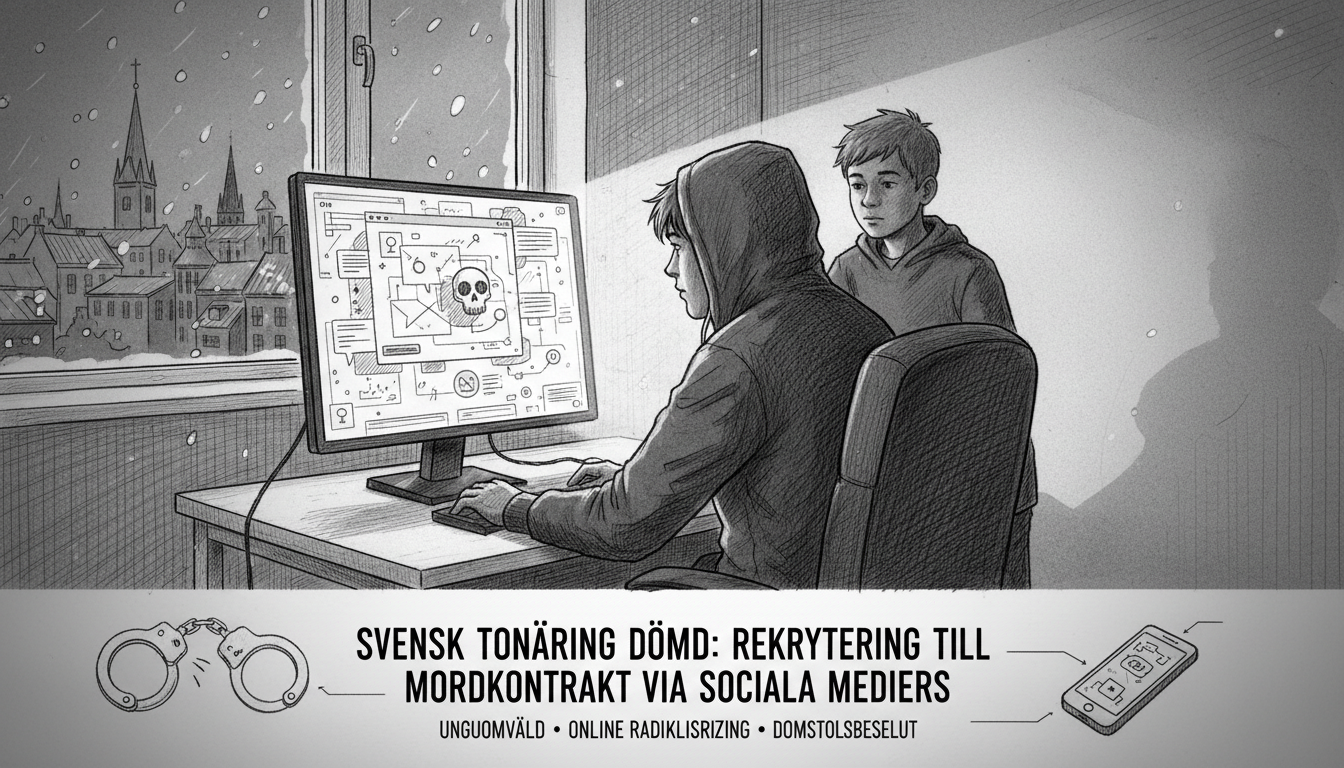A Swedish court convicted a 16-year-old boy for attempting to recruit young people to carry out murder contracts. The teenager also faced charges for ordering a completed bombing on Hisingen, an island district in Gothenburg. Prosecutors presented evidence showing the brothers shared both a bedroom and a computer. From that computer, messages about murder contracts spread across various social media platforms.
The younger brother received acquittal from all charges. During police interviews, he claimed the entire situation represented an elaborate role-playing game. He stated he acted as the national police commissioner in this fictional scenario. Swedish authorities took the threats seriously enough to pursue full criminal prosecution.
This case highlights growing concerns about online radicalization among Swedish youth. Swedish law treats violent conspiracy with extreme seriousness, even when suspects claim fictional contexts. The conviction demonstrates Sweden's strict approach to preventing youth violence.
Sweden maintains one of Europe's more comprehensive legal frameworks for addressing online crimes. The country has strengthened laws against digital recruitment for violent activities in recent years. This conviction represents another application of these legal tools.
International readers should understand Sweden's legal system differs significantly from common law traditions. Swedish courts can convict based on demonstrated intent and preparation, even without completed crimes. The shared computer provided crucial evidence for establishing criminal responsibility.
The case raises questions about parental supervision and digital literacy. Two brothers sharing devices while allegedly planning violent acts suggests potential monitoring gaps. Swedish schools have implemented digital citizenship programs, but this case shows their limitations.
What consequences might this conviction bring? Swedish juvenile offenders typically face rehabilitation-focused sentences rather than pure punishment. The court likely considered the defendant's age when determining appropriate consequences. Sweden emphasizes reintegration while maintaining public safety.
This ruling may influence how European courts handle similar cases involving youth and digital platforms. Other Nordic countries monitor such precedents closely, as they face comparable challenges with online radicalization. The case could inspire tighter social media regulations across the region.
Gothenburg authorities continue addressing youth violence through multiple approaches. The city combines law enforcement with social programs targeting at-risk young people. This case represents both a success and a challenge for these ongoing efforts.

